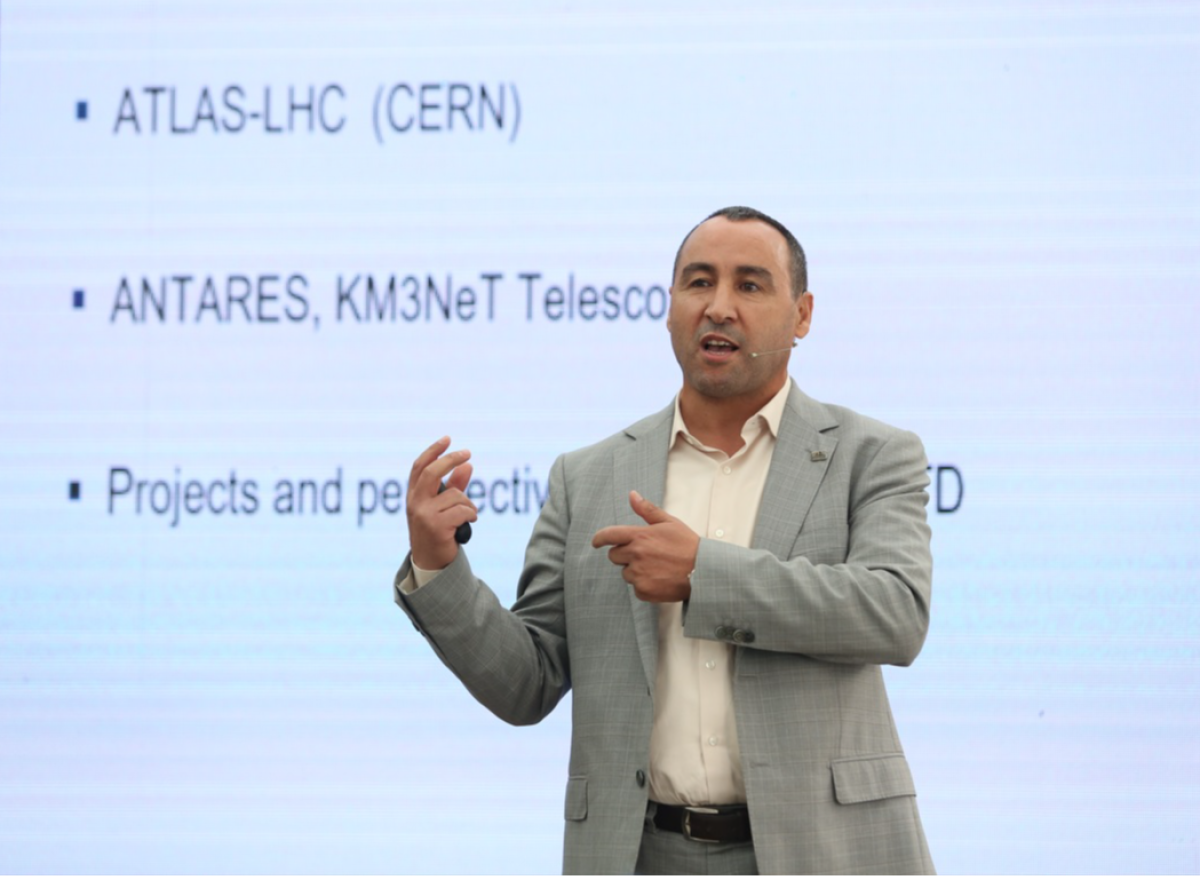Transforming TB detection and treatment in Africa


In an article contributed by Prof. Yahya Tayalati, a 2021 Mustafa(pbuh) prize laureate, he addressed Tuberculosis (TB) as a global health challenge and the role of AI in improving TB management.
MSTF media reports:
Tuberculosis remains a significant global health challenge, particularly in low- and middle-income countries, where timely diagnosis and effective treatment are critical yet often inadequate. TB affects one-quarter of the global population and causes 1.3 million deaths annually, with 90% occurring in developing countries. In African countries, late diagnosis, treatment adherence issues, and treatment failures are major challenges faced by national TB programs. The rise of multidrug-resistant (MDR) and extensively drug-resistant (XDR) TB strains further complicates efforts to control the disease, especially in regions already struggling with HIV and malaria co-epidemics. These poverty-related diseases form overlapping epidemics that complicate case management and overall control efforts.
To address these challenges, the AI4TB project, part of the broader AI4PEP: Global South Artificial Intelligence for Pandemic and Epidemic Preparedness and Response Network, is leveraging artificial intelligence (AI) to improve TB management by enhancing early detection and optimizing treatment protocols. The AI4PEP Network, established in August 2022, harnesses interdisciplinary insights from AI, clinical public health, One Health, and data sciences to design practical tools and locally relevant interventions, focusing on the disproportionate impact of pandemics and epidemics on vulnerable communities.
Funded by the Canadian International Development Research Centre (IDRC) under the AI and Global Health Investment initiative, the Global South AI4PEP Network unites an interdisciplinary team of experts, including clinical public health professionals, AI and data scientists, epidemiologists, physicists, mathematicians, software engineers, and specialists in disaster and emergency management, citizen science, and community engagement. This diverse team collaborates with community health practitioners, program managers, policymakers, and decision-makers across government levels, along with other stakeholders from Africa, Asia, Latin America, the Caribbean, and the Middle East and North Africa.
The AI4TB project, with partners from Morocco, the Democratic Republic of Congo (DRC), Burkina Faso, and South Africa, focuses on improving diagnosis, optimizing treatment, and enhancing monitoring. AI tools assist healthcare professionals in diagnosing TB more accurately through advanced analysis of medical imaging and diagnostic data. Machine learning algorithms create personalized treatment plans for patients, improving therapy efficacy and reducing potential side effects. AI-driven systems are also implemented to monitor patient progress and adapt treatment plans as needed, ensuring better adherence and minimizing the risk of drug resistance.
AI can significantly improve TB management in resource-limited areas by providing tools for early diagnosis, especially where radiologists are scarce. For instance, chest X-rays can be photographed using a cell phone and analyzed remotely by AI, making early identification and treatment more accessible. AI models also offer potential for predicting MDR-TB and optimizing treatment regimens, which is crucial for interrupting transmission chains and preventing more severe drug-resistant forms.
Despite technological advancements, many African countries still rely on traditional TB diagnostics like tuberculin tests, chest X-rays, and smear microscopy, which are less sensitive than newer molecular tests. AI offers a promising solution to bridge this gap by enhancing 23 diagnostic accuracy and supporting healthcare systems in delivering timely and effective care. Moreover, AI can optimize healthcare professionals' workloads, freeing up resources for research, innovation, and infrastructure improvements.
Collaboration between national and international interdisciplinary research networks is essential for effectively implementing AI techniques due to the complex nature of TB and the diverse factors affecting its spread and treatment. The AI4TB consortium emphasizes the importance of global cooperation and innovative solutions to end TB. Supported by the AI4PEP Network, the IDRC and York University, this initiative aims to harness responsible AI to develop equitable and resilient governance strategies, enhancing societal preparedness for future pandemics and epidemics, and ultimately making a significant impact on global health.
This article appeared in the August 2024 issue of IAS newsletter. Islamic World Academy of Sciences (IAS) is an independent body that used to have the Mustafa(pbuh)Prize Laureates as well as a number of top business leaders and scientists across the OIC countries among its Honorary Fellows.